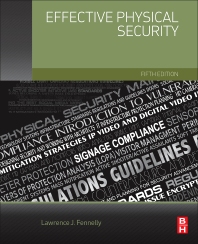In Tennessee, a plaintiff entered into a contract with an alarm company to provide alarm monitoring services for their apartment. A burglar broke in, and the alarm company failed to notify the police or apartment complex. The company left a voicemail on the plaintiff’s telephone asking her to return the call. Surveillance video showed that the burglar removed the alarm system, found a safe and stole a significant amount of money. The plaintiff filed a complaint against the alarm company alleging breach of contract, negligence and detrimental reliance.
The company filed a motion for judgment on the pleadings with a supporting memorandum. The case was filed in the State Court in Tennessee but moved to the United States District Court of the Western District of Tennessee upon the motion of defendant alarm company, alleging diversity jurisdiction.
The alarm company argued that any damages must be limited to $250 under the limited liability provision of the contract. The provision provided that, “You understand and agree that if either owner or alarm company should be found liable for loss, damage, or injury due to the failure of the system in any respect whatsoever, including but not limited to alarm company’s monitoring of the system, owner’s and alarm company’s collective liability shall not exceed $250.”
The plaintiff contended that the limitation of liability clause was not enforceable because it is an adhesion contract, which is unconscionable, and its enforcement violates public policy.
The court said that in Tennessee an adhesion contract is defined as “a standardized form offered on what amounts to a ‘take it or leave it’ basis, without affording the weaker party a realistic opportunity to bargain, and under conditions whereby the weaker party can only obtain the desired product or service by submitting to the form of the contract.”
The court referred to previous cases in Tennessee which held there is no adhesion unless there is no “meaningful choice for the party occupying the weaker bargaining position.”
The court said that even if a contract is adhesive, it remains enforceable unless it is unconscionable. A contract will be deemed unconscionable if “the provisions are so one-sided, in view of all the facts and circumstances, that the contracting party is denied any opportunity for meaningful choice.” The court said that Tennessee courts typically found adhesion contracts unenforceable when the weaker party’s available remedies are more limited than the leveraging party’s, or the weaker party’s remedy is exclusive, but the leveraging party’s is not. The limited liability clause here does not give the company more remedies than the plaintiff or provide an exclusive remedy for the plaintiff, but not the company. Both the plaintiff and the alarm company are limited to $250 in damages.
Tennessee courts have decided that liability clauses limiting the amount of damages for alarm-system monitoring services do not violate public policy, especially where liability can be increased by paying an additional amount. The court held that the plaintiff failed to establish that the limited liability clause was unenforceable and that the defendant’s motion for judgment on the pleadings is granted on plaintiff’s breach of contract claim.
With respect to the negligence claim, the court said the company had a duty to perform its obligations under the contract with reasonable care, and that it breached that duty by negligently monitoring the alarm system. Therefore the company’s Motion for Summary Judgment on the pleadings on plaintiff’s negligence claim was denied.
The Motion for Judgment on the Pleadings was granted with reference to the breach of contract claim and denied in part; and the company’s motion to limit recovery on plaintiff’s breach of contract claim of $250 was granted.
READERS ASK
Q: We are a manufacturer of security equipment. We contract directly with our customers, but we enter into agreements with licensed integrators to do the installation. Do we require a license in the various states in which we sell our equipment?
A: I cannot answer the question as posed as it would depend on which states you are doing business in. The laws vary. In California, for example, the Business & Professions Code defines an alarm company operator as a person who, for any consideration whatsoever, engages in business or accepts employment to install, maintain, alter, SELL on premises, monitor or service alarm systems or who responds to alarm systems ….
The B&P Code further indicates that no person shall engage within this state in the activities of an alarm company operator as defined in Section 7590.2 unless the person holds a valid alarm company operator’s license or is exempt from the provisions of this statute. Therefore it would appear that if the company enters into an agreement to sell its system, even though the seller is not going to install the system, the probability is that a license would be required. If, of course, the system is sold to an integrator who then resells the system to the ultimate user, a license would not be required. This situation is true in some states but not all states.







